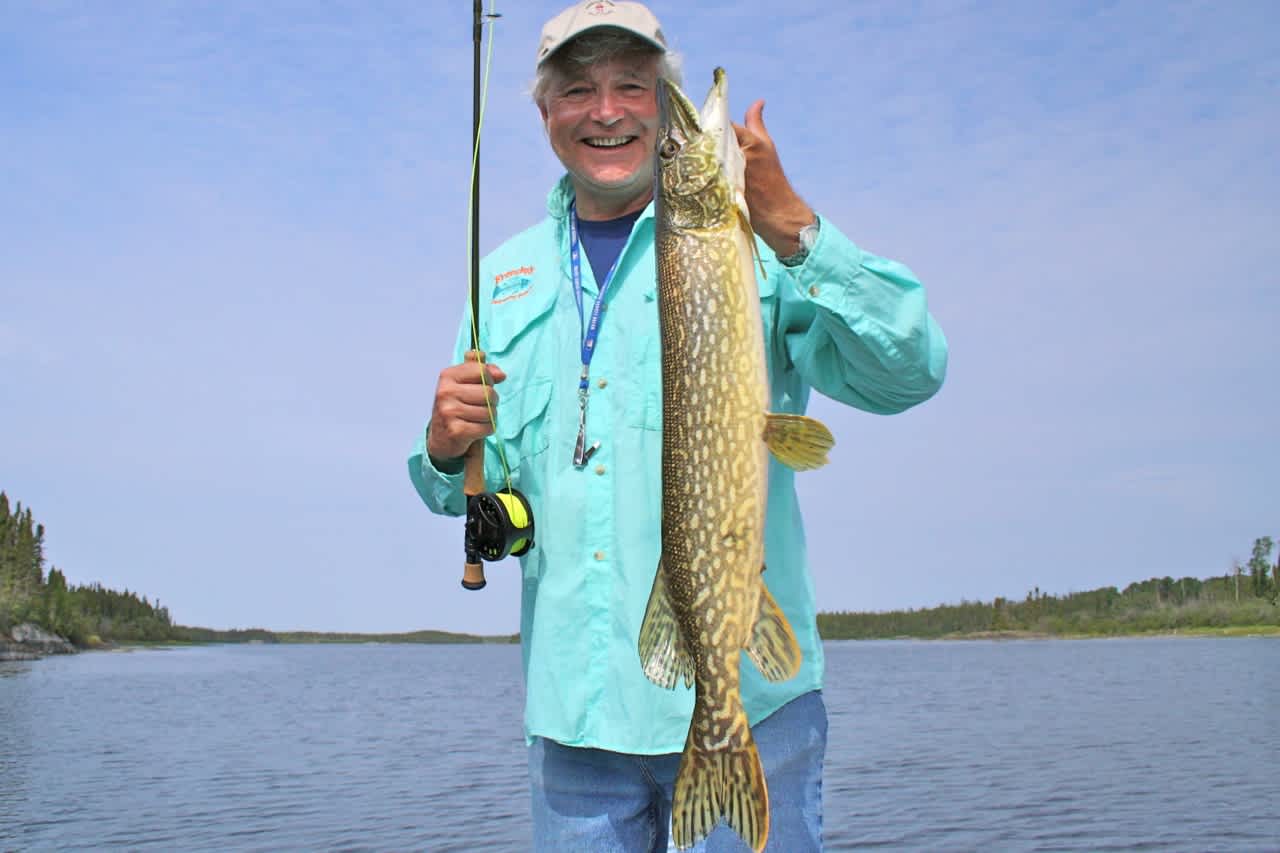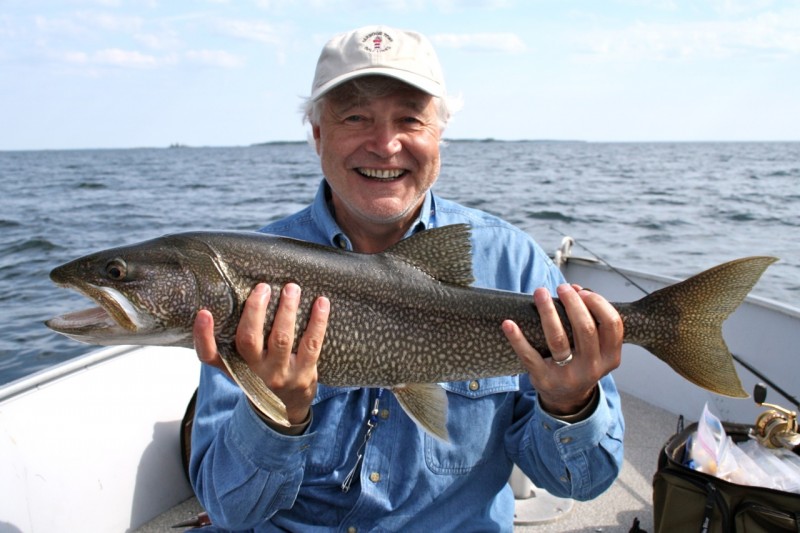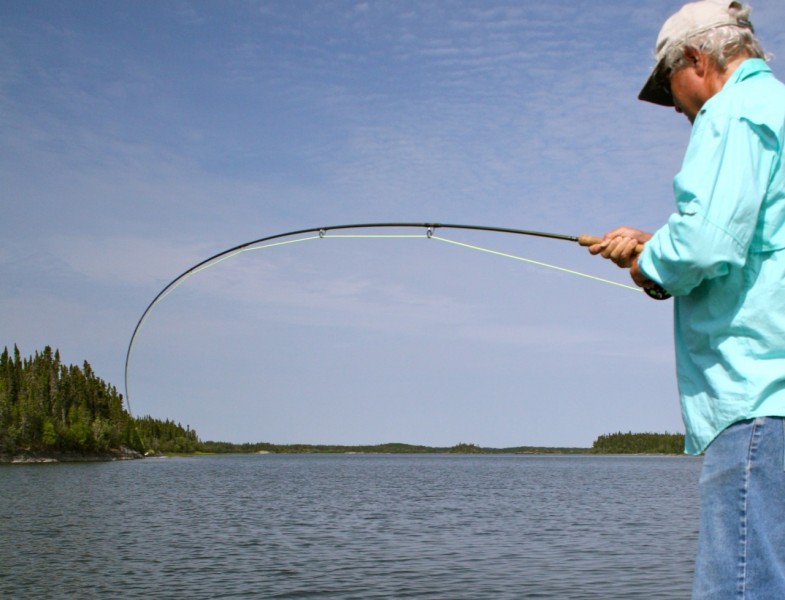Why You Need to Try Fly Fishing for Pike in Northern Manitoba
Scott Gardner 02.01.16

As he popped his spinnerbait out of the mouth of yet another toothy critter, my friend Lorne looked over at me and said, “I can’t believe it, but I’m getting a bit tired of catching all these pike.” To my surprise, I could see why he felt that way.
We were on the third day of our stay at a full-service, fly-in fishing lodge in the far north of Manitoba, Canada. It’s amazing how a place this beautiful, wild, and remote changes your perspective. We’d already boated at least a hundred northern pike, a dozen of which were in the 36-inch range. At home in Chicago, a three-foot-long fish would be the catch of the season for Lorne. But after three days, it had become routine.
Just that morning, we’d even had some unforgettable lake trout action. We dropped three-inch bucktail jigs to the bottom and aggressively retrieved them, driving the lakers mad. On the sonar, I watched one fish chase Lorne’s jig up 80 feet and actually breach, snapping at the bait like the shark in Jaws. We caught and released at least a dozen fish each—most were long, thick, and in the 30-inch range. Between the fish, the fellowship, and the landscape, our trip was already a success. Even the early-July weather (sunny and in the high 70s) had been great.

Yet Lorne was still on the hunt for something more, especially after seeing me land three trophy-size pike over 41 inches, each of which qualified me for a Manitoba Master Angler Award. And two of those northerns had been on my fly rod—an extra thrill. But Lorne was still looking for that extra-special experience that transforms a trip from fun to epic. As a veteran of these northern adventures, I knew what he needed: “After supper, my friend, we’ll get you some pike on the fly rod.”
If any freshwater fish could snarl, it would be the northern pike. Long and muscled, with an underslung jaw and mouth full of jagged teeth, pike are perfect killing machines. And when you find them in shallow, clear water, you can spot and cast to individual fish. Doing this with a fly rod is both exciting and, arguably, the most effective fishing method. A six-inch-long fly undulates seductively in the water unlike any other bait. Always-hungry pike find them irresistible. Fortunately for Lorne, a fly fishing novice, pike up here are not always conditioned to boats or anglers. If you can cast a fly 30 feet, you’ve got a very good shot at hooking up on a trophy fish.
As our boat ghosted into a small bay early that evening, I felt good about Lorne’s chances. As expected, he almost immediately started hooking starter-size pike of about 10 pounds. Landing even a mid-size fish on a fly rod is more challenging that with conventional gear, and Lorne was having a blast—though his casting was still a little unpredictable.
“Rats,” he said. “It went past that log, and I think it’s going to snag.”

I saw the log, too—a long, thick greenish cylinder, near the bottom in three feet of water. And then the log turned its head.
“It’s a giant pike—keep your fly moving!” I hissed. And as we watched, the beast opened its great maw and engulfed the fly. Lorne, shocked, still remembered to set the hook, and the chaos began.
Lorne’s rod doubled over as the fish rolled, ran and thrashed. Finally it slid into the landing net, and we looked in wonder at the beast, nearly 45 inches long. Then Lorne and our guide carefully released it. As the pike cruised away, Lorne with his hands still shaking and eyes twinkling, looked over at me and said, “I could never get tired of that.”
Get started on planning your own Manitoba fishing adventure today at the Travel Manitoba website.
This article was produced in partnership with Destination Canada and Travel Manitoba.

